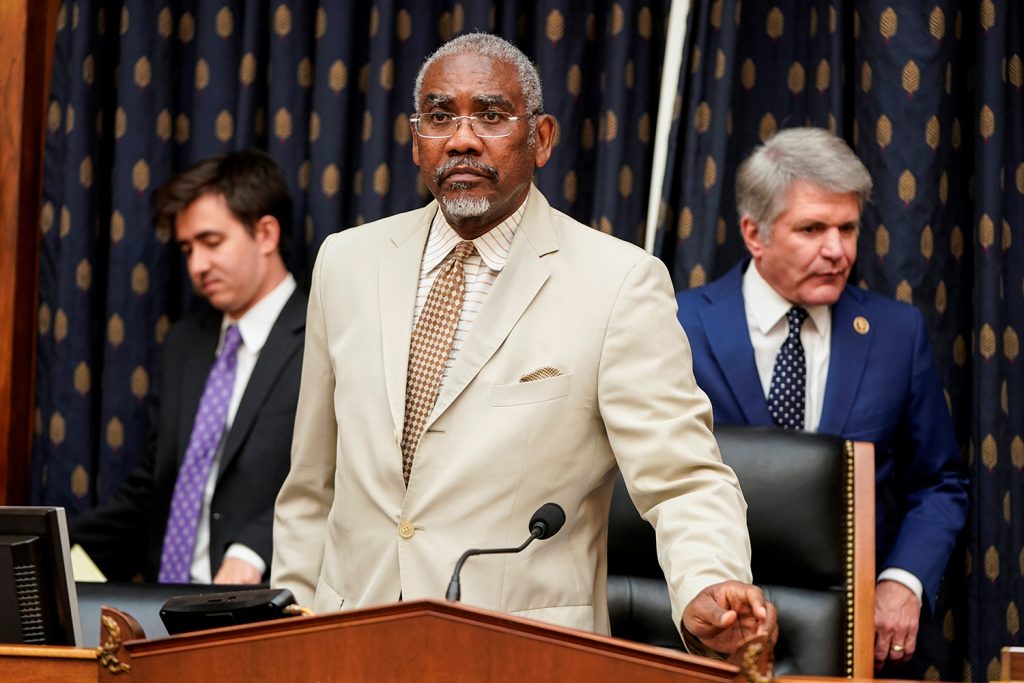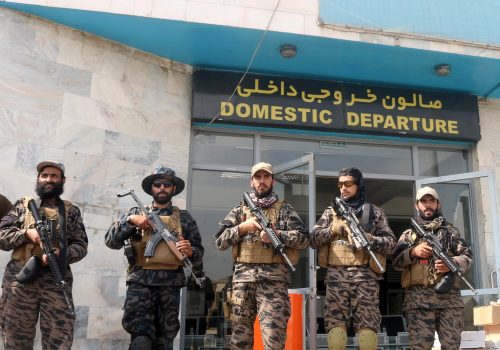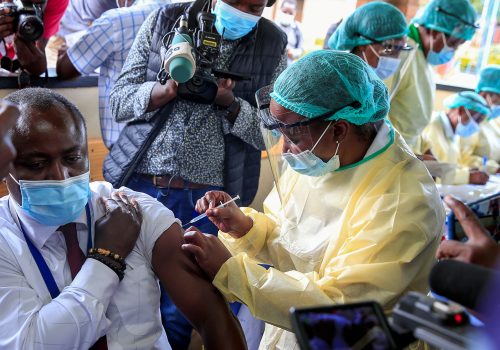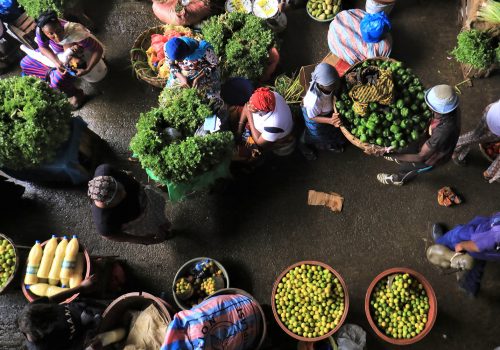After the US withdrawal from Afghanistan, it has become clear that “terrorism now is global, and we’ve got to work in a multilateral way to combat and fight that,” said US Representative Gregory Meeks (D-NY-5).
Another hub for that fight is Africa, where terrorist groups like al-Shabaab in Somalia have spurred violence. And the United States, along with African and NATO allies, should not hesitate to strike against any threats to US security, said Meeks, the chairman of the House Foreign Affairs Committee, on Thursday.
“Through our engagement with allies, we can fight and defeat terrorism,” he said. “That’s what we will continue to do, without being occupiers.”
Appearing at an Atlantic Council Front Page event hosted by the Council’s Africa Center, Meeks discussed strategies to make Africa a US priority and to beef up investments in Africa’s infrastructure, businesses, and people. Here are some more highlights from his conversation with Africa Center Director Rama Yade:
Counterterrorism: Over the horizon, all hands in
- Meeks, who has served in the House since 1998, recalled the vote on the Authorization for the Use of Military Force twenty years ago that aimed to uproot and prevent further attacks from al-Qaeda. “We accomplished that,” he said, but attempting to nation-build in Afghanistan landed the United States in a twenty-year war. “It shows that everything does not have a military option, [and] the military does not dissolve all issues,” he said. “Diplomacy has to play a role in it.”
- Now it is up to the United States to ensure that the Taliban holds true to its commitments, particularly about the welfare of Afghan women and girls, Meeks said. “We need to do what we can do to support and make sure that our interests are taken care of and work globally [on] counterterrorism.”
- US Secretary of State Antony Blinken will appear before the House Foreign Affairs Committee to discuss Afghanistan on Monday, and Meeks said he will bring others in to testify about the various phases of US involvement in Afghanistan, from the invasion to the withdrawal.
Watch the full event
Investing in a future powerhouse
- Terrorist threats and instability across Africa are calling into question the roles that the United States and other global powers play there, noted Meeks. But he maintained that the international community should lend economic support, particularly by “investing in stabilizing governments and reducing poverty,” which can disincentivize people from joining terrorist groups.
- It will also be important for the international community to speak up in support of democratic values after events like Sunday’s coup in Guinea, which unfolded after President Alpha Condé won re-election for a controversial third term. “The people of Guinea expect and deserve much more,” Meeks said. He explained that “when you grow economies… they lessen the opportunity to have coups, [and creating jobs] helps to create a strong democracy.”
- With its rising youth population, Africa is predicted to hold increased economic sway in the future. So the United States “better look at how we are investing in [and] working in a collaborative way with the continent of Africa.”
- Meeks said that as he encourages American companies to invest in Africa, he also plans to work with the Biden administration to “build a coherent, all-government strategy… [to] harmonize our efforts in trade and investment,” and fuel the development of better infrastructure, technology, schools, and energy projects. Meeks also mentioned supporting initiatives like Prosper Africa, which aims to create jobs and contribute to growth on the continent: “I want to make sure that we get engaged.”
The United States: A friend that can do better
- As Africa struggles to recover from the pandemic-driven economic crisis, Meeks said that the United States must ensure that Africans have access to the COVID-19 vaccine. The Biden administration is currently delivering twenty-five million doses to the continent, but “when you have over a billion people, twenty-five million [doses is] just not enough,” he said, explaining that “if anybody is unvaccinated, all of us are unsafe, so the whole world has to focus on making sure that everybody has access to the vaccine.”
- Another crisis is creating worry for the world: climate change, which is bringing about dire consequences everywhere from the Sahel to Meeks’ New York City district, which recently bore the brunt of hurricanes Henri and Ida. But as international bodies make commitments on cutting emissions or boosting renewable energy, “they’re not talking with and hearing from the African people… That’s got to stop,” Meeks said. “We can’t tell the continent to do one thing when it doesn’t have the resources” to do so. Thus, it is important for the rest of the world to “put the resources—collectively and multilaterally—into accomplishing the goals so that Africa can have the energy it needs,” Meeks said.
- What else can the international community do? Meeks said investing in Africa’s women and youth is a good start. “Africa has lost 50 percent of its brainpower by not utilizing the women on the continent… If you don’t invest in them, we’re going to lose the future.”
- More than anything, Meeks said Africans need a seat at the global power table: “I’m telling Secretary Blinken and the president of the United States to make sure African voices are heard and taken into consideration. Don’t just talk to [them], work with them.”
Katherine Walla is the assistant director of editorial at the Atlantic Council.
Further reading
Image: Chairman of the House Foreign Affairs Committee Gregory Meeks (D-NY) arrives before a hearing with US Ambassador to the United Nations Linda Thomas-Greenfield on the Biden administration's priorities for engagement with the United Nations, on June 16, 2021. Photo via REUTERS/Joshua Roberts.



